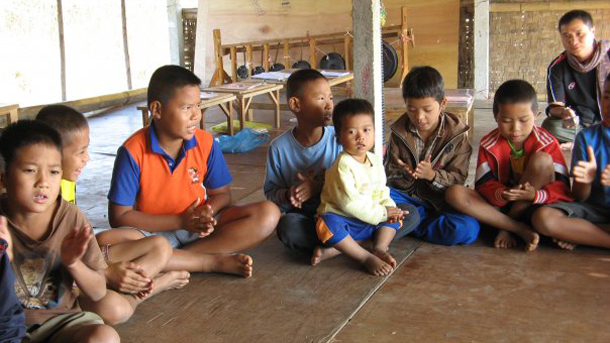More than 2,000 ethnic Shan students face uncertainty over their future education due to funding shortages suffered by their schools, according to local sources.
Nang Moan Kaein, a spokesperson for the Shan Women’s Action Network (SWAN), said that her group only can find around 40 percent of the necessary budget to run their schools. However, she pledged to still open towards the middle of May even if donors cannot be found.
“Even though we do not have a large enough budget, we will open the schools because all the children are waiting to join classes,” she told The Irrawaddy on Wednesday.
There are currently 15 schools run by the organization which employs more than 100 teachers. The salary of each teacher is 2,500 baht (US $80) per month, but a five-year contract for funding from the Danish Burma Committee ended in 2011.
“We had a five-year contract from the Danish Burma Committee, but they already told us that once this was finished they could not provide it any longer,” said Nang Moan Kaein.
She explained that she hoped that donors would soon be found to solve the crisis, and that the SWAN has even asked Shan migrants who live abroad, including in Thailand, to help with funding in the meantime.
There are more than 1,000 students based by the Thai-Burmese border near to Fang District, north of Chiang Mai, northern Thailand, and another 1,000 based in Burma’s Shan State itself.
The SWAN has been opening schools for ethnic children since 1999 in the wake of a period of forced relocations from the center of Shan State which began in 1996. The group said that there were around 1,400 villages and 300,000 people who were displaced at the time, so they ran classes to provide education for the children involved.
“As you know, the Shan cannot have refugees in Thailand,” said Nang Moan Kaein. “We open schools for them to get basic education in order to get opportunities that they would not otherwise have.”
Shan schools based in Fang District must officially register with the Thai authorities and have classes from primary to grade six. Students who finished grade six can then join Thai government schools, according to the group.
Many civil organizations based along the Thai-Burmese border have been facing difficulties due to foreign donors moving inside Burma in the wake of recent nascent political reforms. Donors which used to work with refugees in frontier regions have made contract with the Burmese government in order to work legally inside instead.
















